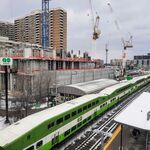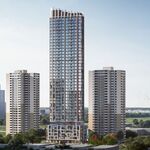Chronamut
Active Member
Guess we'll just wait and see.
Also as far as the "neighbourhood character" thing - I never saw it on racial grounds but purely on architectural ones - an area has a specific style - that building doesn't match it - it's like when someone builds an ultra modern house in a victorian style strip - just doesn't fit and looks jarring vs being cohesive.
and some of those things can't be helped - the entire victorian era most likely was centered around purely white people - but to love victorian era doesn't mean that we are white supremacists or cling to the virtues of such a time, nor does clinging to maintaining that character mean they are anti-progressive, merely that they wish to maintain the style. As a traditionalist I can resonate with this - our city has a lot of that style of architecture left because we have fought to keep it, and continue to. Sure modern creeps up here and there, but I would hate to see us become like other cities where everything is just modern. We have great history here, great roots, great character in our surviving buildings, and it's nice to see the fusion.
And apologies, you made it sound like anyone who cried such things such as anti-immigration had racist undertones, when really it's rarely ever about that specifically. For most it's more economic.
Also as far as the "neighbourhood character" thing - I never saw it on racial grounds but purely on architectural ones - an area has a specific style - that building doesn't match it - it's like when someone builds an ultra modern house in a victorian style strip - just doesn't fit and looks jarring vs being cohesive.
and some of those things can't be helped - the entire victorian era most likely was centered around purely white people - but to love victorian era doesn't mean that we are white supremacists or cling to the virtues of such a time, nor does clinging to maintaining that character mean they are anti-progressive, merely that they wish to maintain the style. As a traditionalist I can resonate with this - our city has a lot of that style of architecture left because we have fought to keep it, and continue to. Sure modern creeps up here and there, but I would hate to see us become like other cities where everything is just modern. We have great history here, great roots, great character in our surviving buildings, and it's nice to see the fusion.
And apologies, you made it sound like anyone who cried such things such as anti-immigration had racist undertones, when really it's rarely ever about that specifically. For most it's more economic.
Last edited:




